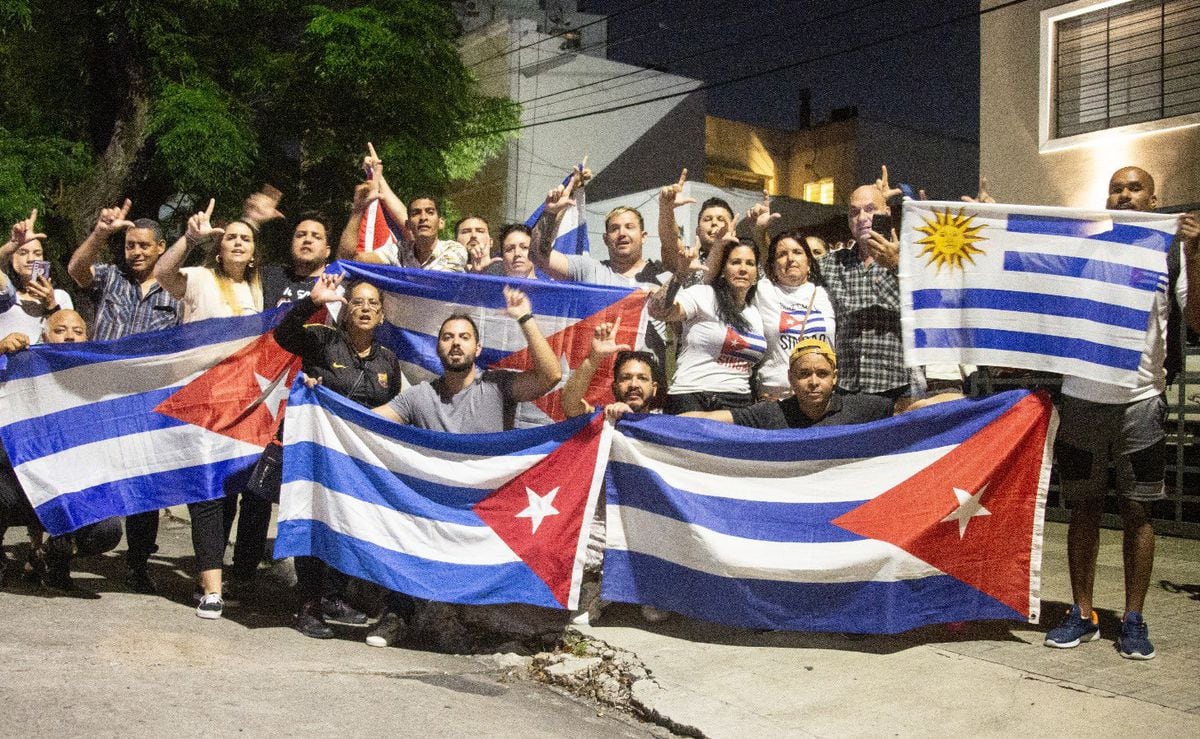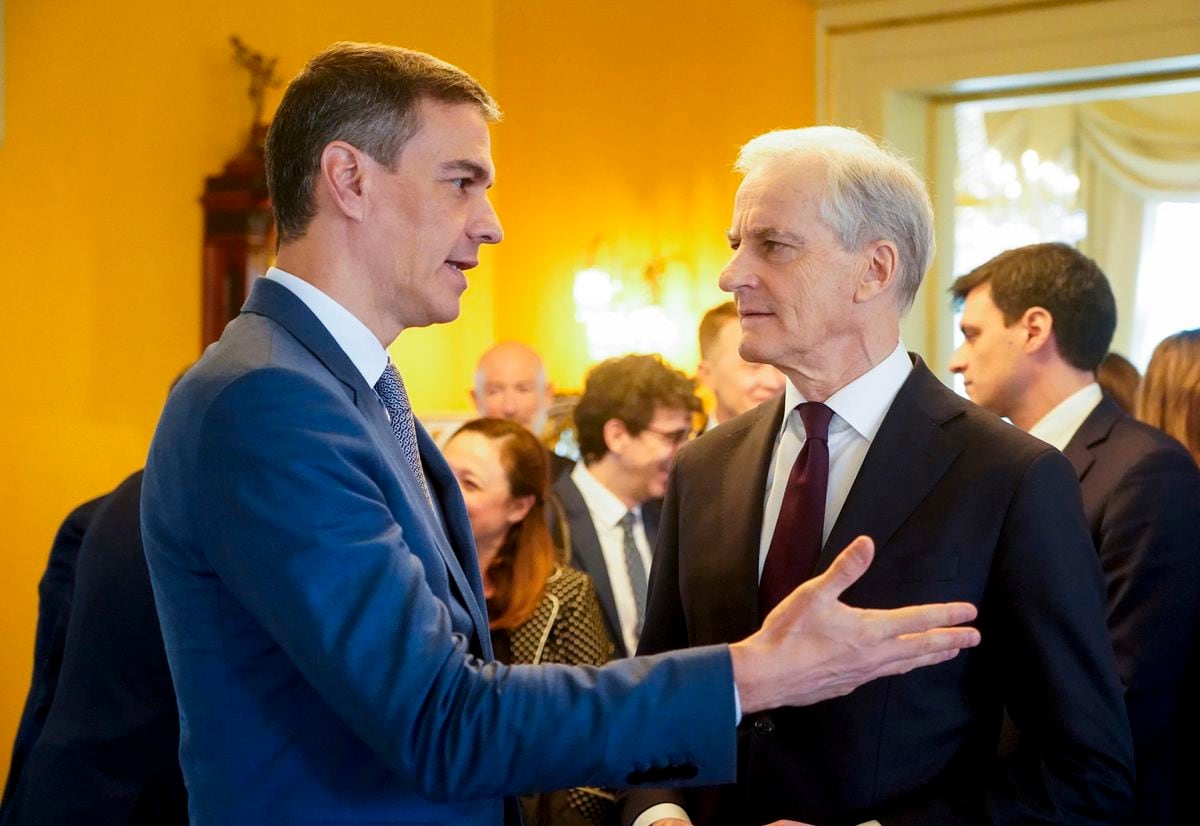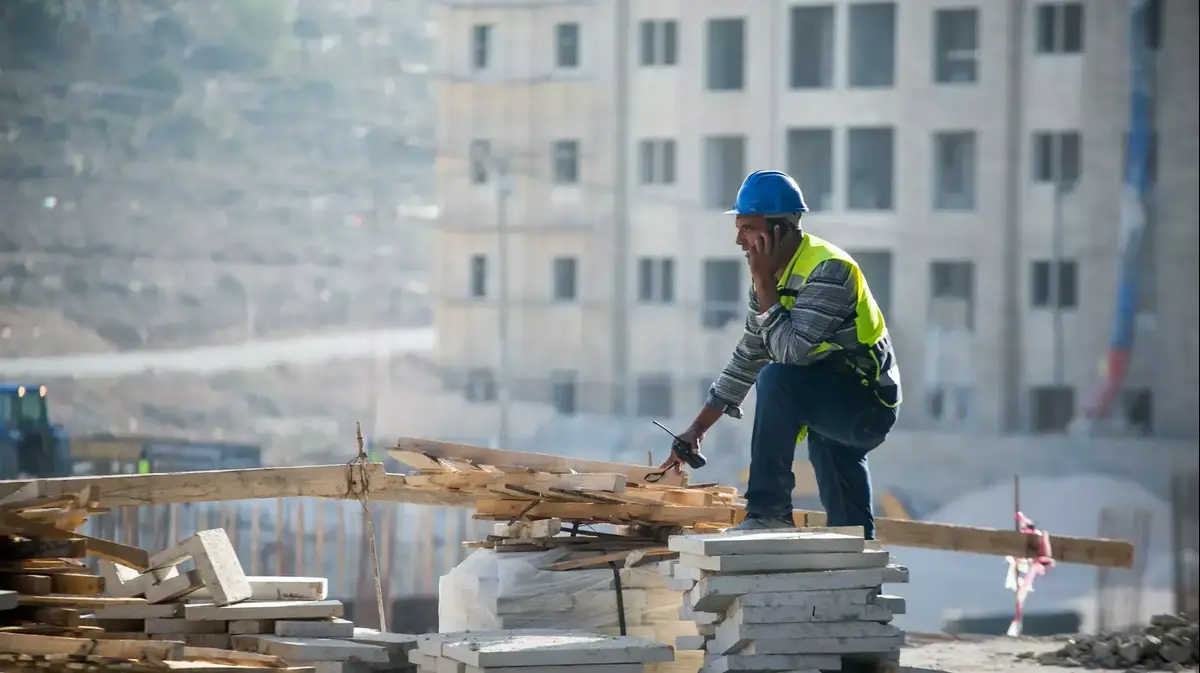The Minister of Foreign Affairs and Defense of the Republic of Ireland, the Conservative Simon Coveney (Cork, 49 years old), has been in politics for almost a quarter of a century, since he took the seat that his father had after the 1998 elections. Ireland's vice presidency from 2017 to 2020 and helped forge the
New Decade, New Approach deal
which then ended three years of collapse in the Northern Ireland Home Rule Government.
Now, the victory of Sinn Féin in that British region has once again led to a deadlock, with the DUP unionists refusing to form the Belfast Home Rule Government (the 1998 peace accords require the participation of the two largest parties). voted).
They insist that the Brexit Protocol agreed with Brussels be repealed to avoid a hard border on the island that puts peace at risk.
Coveney defends the need to find a solution between London and Brussels through the relaxation of customs border controls set in the Irish Sea.
Passing through Madrid, and before meeting last Friday with his Spanish counterpart, José Manuel Albares,
Ask.
What is your reading of the election results in Northern Ireland?
Response.
For the first time in its 100-year history, a nationalist party, Sinn Féin, has won.
Q.
Your rival party in the Republic of Ireland.
A.
Rather
the main opposition party.
But in Northern Ireland
political divisions are largely determined by whether a party is unionist or nationalist, which is why the growth of the Alliance, a group that escapes those categories, has been a big turnaround.
This party [progressive and away from sectarian division] has gone from 8 to 17 seats and this shows that many young people do not want to be confined to history, their priorities are different.
The two largest parties are still Sinn Féin with 27 seats and the DUP with 25, a division not so different from the one there was.
In Northern Ireland there is no majority on any issue, you have large minorities: nationalism, unionism, and now people who don't want to define themselves in those terms.
P.
The leader of the DUP, Jeffrey Donaldson, has announced that he will not agree to the formation of a Government.
It is not the first time that this [British] region has been politically blocked.
In 2020, the
New Decade, New Approach
plan managed to solve three years of collapse.
Will this situation be repeated?
R.
All the parties want to form a government, except the DUP, which says that it will not agree until the issue of the protocol is resolved, although this depends on the British Executive and the European Commission, not on Northern Ireland.
With
New Decade, New Approach
was about dealing with issues of language and culture and the interaction between parties and other political issues.
The priority for most Northern Irish who have voted now has not been protocol, even among unionists it was not the main issue.
It is an important issue, and we should not underestimate it, but it is not the only one, far from it.
The elections show that there is a solid majority of party seats that are in favor of making the protocol work.
There are 53 parliamentarians out of 90, almost 60%.
P.
Will it be necessary to call elections again?
R.
_
If an agreement is not reached in six months, that is what the law provides.
The difficulty in forming a government is not a surprise.
Northern Ireland has been through a very divisive period since Brexit.
The majority of Northern Irish people voted against leaving the EU, and they are in favor of the protocol because it is the mechanism that tries to protect the 1998 peace agreement, to prevent a physical border from being raised again, and to preserve the permanence of the Republic of Ireland in the European common market.
The problem is that there are people in Northern Ireland, and certainly also in the British Government, who do not like it, because of the controls on goods traveling from the United Kingdom to Northern Ireland.
Q.
In light of this controversy, has that solution failed?
R.
Brexit is controversial, that is the problem.
When a country leaves the EU, it leaves the common market.
There is a majority in Northern Ireland who support the principle of the protocol, but would like to see it implemented in a more flexible and pragmatic way.
That is what you have to work on.
Q.
Isn't that far away when the Government of Boris Johnson and the United Kingdom Attorney General's Office threaten unilateral measures?
R.
_
We want the protocol to work in a sensible way and take into account the genuine concerns it raises.
Instead, the British government says that either the EU gives them what they want, or they are going to legislate internally to park the protocol and do as they please.
That will cause a lot more problems than it will solve.
P.
London argues that there is unrest in Northern Ireland.
R.
There is some tension.
We need to stop it, but the way to do it is not to act unilaterally, because that creates more tension.
The European Commission wants to reach an agreement and has presented proposals.
Q.
What parts of the protocol do not work?
A.
We left London out for a moment;
what the unionists with whom I have spoken want is to differentiate between the merchandise that remains in Northern Ireland territory and that which will travel to the rest of the EU.
It is possible to drastically reduce controls on products traveling from the UK to Northern Ireland and consumed there with better labelling, sharing information about production, registering products
online
.
The labels would help to differentiate between the products that will stay and those that will travel, because otherwise the companies from France, Spain or Germany would question whether there is a back door to the common market that is not being watched.
P.
Is the confrontation with the EU part of Boris Johnson's internal political strategy?
A.
We have seen this over and over again.
At certain times, for whatever reason, the British government decides to stir up the tension and its narrative around Brexit-related issues, presenting the EU as inflexible, irrational and unwilling to negotiate, and that doesn't hold up.
We have to find the political way to solve this together, because otherwise the EU will be forced to respond to the violation of the law.
It cannot be that the collateral damage of Brexit is the position that Ireland occupies in the European common market.
So this issue goes beyond Northern Ireland.
Q.
Does the Sinn Féin victory bring the reunification referendum closer?
R.
The balance between unionism and nationalism has not changed substantially at the polls.
The most voted party wants that referendum, but the nationalists have lost four seats and the unionists three.
The arithmetic hasn't changed, at least not yet.
Q.
The generational change that has driven the Alliance in Northern Ireland, does it also affect the neighbors to the south who may no longer seek reunification or would not be willing to pay the bill that it would bring?
Simon Conveney, Foreign Ministers of Ireland, at the embassy in Madrid. Jaime Villanueva Sánchez
A.
There is a large majority of people in the Republic of Ireland who would want reunification in the future.
The question is how to do it in a way that looks to the future and not to the past.
It would have to be a generous and diverse process that respects British and Irish traditions.
The issue for this generation is how to open that debate without frightening and without creating the divisions and fear that drive extremism.
That is a journey we must undertake, but we must not rush into it.
Q.
Ireland is out of NATO.
Does the approach to the Alliance of Sweden and Finland change things?
R.
It is not likely that we will join, but we will strengthen defense cooperation with other European states.
Like the rest of the EU countries, we are rethinking security and defense due to the war in Ukraine.
Q.
Is neutrality no longer possible?
A.
From an Irish perspective, neutrality is being outside defense pacts.
But it is not a politically neutral country.
We have been very critical of Russia and we are giving military support to kyiv to defend itself, although we are not sending lethal weapons.
Let's say that Ireland has a very proactive neutrality.
Q.
The UK has said that refugees from Ukraine crossing from Ireland will be transferred to Rwanda.
R.
We are witnessing the worst humanitarian disaster in Europe since World War II.
30,000 refugees have arrived in our country.
Ireland and the United Kingdom have an agreement that allows the free movement of people, and we have had an immigration policy in tune.
We have now decided not to require a visa for Ukrainians and the UK has a different system for receiving them.
That has created some problems because there is no physical border with Northern Ireland and there is no way to prevent Ukrainians from crossing.
Follow all the international information on
and
, or in
our weekly newsletter
.
Exclusive content for subscribers
read without limits
subscribe
I'm already a subscriber









